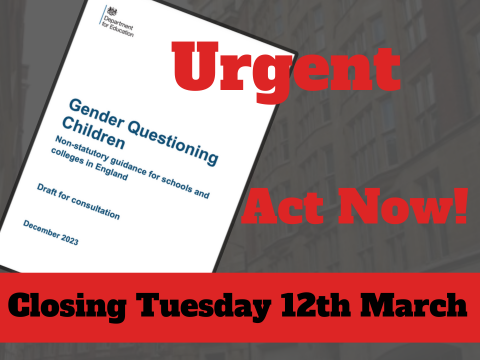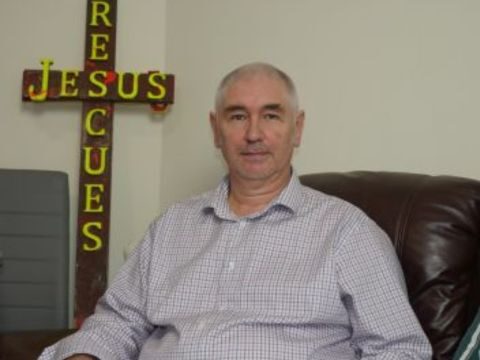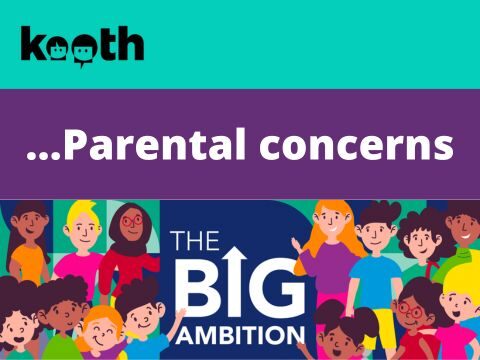

The current, controversial programme called “No Outsiders” being promoted in various schools has led to a storm of protest from parents. It has been the most divisive single educational measure in recent years. Parents have removed their children from schools; staff have lost their jobs for protesting against it on behalf of their own children; it has made the classroom political to an extent as never before and put pressure on Heads and teachers alike. What is the view that parents, teachers, governors and educationalists should take? Is it a necessary measure to combat discrimination? Or is it a force for division and conflict that will mar and destabilise the education and development of children? This paper is written for ParentPower by a serving Headmaster to assist parents to understand what the programme is, and if it comes to their school what responses are open to them.
As reported in the press, and on BBC and other news channels:“ The No Outsiders programme was created in 2014 by Andrew Moffat, the assistant head teacher at Parkfield Community School in Birmingham. The programme aims to teach children about the characteristics protected by the Equality Act – such as sexual orientation and religion. Books used in programme include stories about a dog that doesn’t feel like it fits in, two male penguins that raise a chick together and a boy who likes to dress up like a mermaid.”
Another news report states “Children from reception age through to year 6 were being taught five No Outsiders lessons per year, each one covering topics to meet requirements in the Equality Act. Books being read by the pupils include Mommy, Mama and Me, and King & King – stories about same-sex relationships and marriages.”


Amanda Spielman, Chief Inspector of Schools for Ofsted, the schools’ regulatory body, was reported in the Guardian as saying it was right that children were taught about same-sex couples – regardless of religious background – and that not everyone fits “a conventional pattern”. “It’s making sure they know just enough to know that some people prefer not to get married to someone of the opposite sex and that sometimes there are families that have two mummies or two daddies. It’s about making sure that children who do happen to realise that they themselves may not fit a conventional pattern, know that they are not bad, they are not ill.”
It is clear therefore that a) it is aimed at primary school children b) it covers same-sex relationships c) it covers same-sex marriage or families. It is claimed that without these programmes, children may suffer bullying or discrimination or forms of exclusion, social or physical or psychological, because of any perceived “difference” or variation from “a conventional pattern”. The aim is that no-one is made to feel “outside” or treated as such. In educational and developmental terms, it has a pastoral purpose – to allow a child to function in school without anything that may diminish its learning.
To consider its impact and also its value, it is vital to gain an idea of the level of children who will present these issues or be engaged in them.
There are, according to 2018 statistics from the Department of Education – all available from Government sources – approximately 8.7 million children in 24,316 schools in England. According to the most recent ONS (Office of National Statistics) the percentage of people who identify as ‘LGBT’ is just under 2%. This means that in a school of say 300 primary pupils from YR to Y6, it could be estimated there may be 6 pupils so affected to which the “protected characteristics” of the Equality Act relating to ‘sexual orientation’ or ‘gender reassignment’ may apply. The latter includes the “T” of LGBT ‘transgender pupils’.
Turning to same-sex marriages, in 2016, there were 249,793 marriages in England and Wales: 97.2% of all legal marriages were between opposite-sex couples and 2.8% were between same-sex couples. This means that the level of pupils, if this held good in the generality, that may be directly affected by main issues addressed by ‘No Outsiders’ would be between 2%-3% or a maximum of 3 pupils for every 100 in a school. Of course there will be variants up and down both ways, but that is an average.
Now, all schools must teach and adhere to Fundamental British Values, which are
“democracy, the rule of law, individual liberty, and mutual respect and tolerance of those with different faiths and beliefs “
Many of the protests by parents and parent groups have been on the basis of their belief – which should be given “respect” – that LGBT relationships are contrary to what they understand as their God-given morality. This has applied to those of Christian, Jewish and Islamic belief. They, of course, share a common tradition of scripture and moral codes, all deriving from and acknowledging Abrahamic traditions. This does not mean parents of no belief do not have strong views on the No Outsiders programme. But the situation with parents of religious belief is very clear, as their rights are protected under the law. ‘Religion or belief’ is, as stated above in the first quotation, a ‘protected characteristic’ under the Equality Act. Also, in the Human Rights Act of 1998, following the Universal Declaration of Human Rights by the UN in 1948, it states that “In the exercise of any functions which it assumes in relation to education and to teaching, the State shall respect the right of parents to ensure such education and teaching in conformity with their own religious and philosophical convictions.”
Therefore parents who feel or believe the “No Outsiders” programme in its explicit (see quotations above) approval of same-sex relationships and same-sex families teaches in a way that is contrary to their beliefs do have legal rights as to what is taught to their children. This is, conscious or not, the basis for the protests about both the content of the teaching and materials presented to their children. So these parents are acting entirely within their civil rights. Furthermore, the current law under S405 of the Education Act 1996 provides the right of parental withdrawal from all or part of sex education provided at school except for those parts included in the National Curriculum. This is an unqualified right. It will not be the case from September 2020 for secondary pupils under current proposals but is the law until then: i.e., there are 16 months to go for this right still to be absolute. Thereafter it does remain absolute for primary pupils as para 49 of the new regulations states:
- Head teachers will automatically grant a request to withdraw a pupil from any sex education delivered in primary schools, other than as part of the science curriculum.
By definition – see quotations above – ‘same-sex’ relations are about ‘sex’. Quite simply, the word declares it. The same is true about families as Amanda Spielman makes clear “to get married to someone of the opposite ‘sex’”.
The ‘No Outsiders’ programme, affecting under 3% of school children, therefore teaches about ‘sex’. Concern for the pastoral well-being of that 3% can and, in a good school would, be dealt with by pastoral polices that put the welfare of children at the core of its Safeguarding, Behaviour and Anti-Bullying policies.
The percentage of the population, however, that professes Abrahamic faiths – again statistics from the ONS – are 64.5% at the last census. It is not possible by pastoral means to cover 2/3rds of the school for whatever “differences” they may feel. It is not practical.
Therefore those with such beliefs will also legitimately wish to have their beliefs respected. If they are not, they have their legal rights to exercise under the Equality and Human Rights Acts.
Furthermore, these “No Outsider” programmes are being implemented with no research as to their efficacy, and with no statistics as to their need or requirement. There has been no proper trial or investigation of need or impact. There is now a major issue over SRE programmes generally, as shown by recent research on programmes cited by UNESCO which concluded,
“The UNESCO database demonstrates that CSE (Comprehensive Sex Education) in schools has not been an effective public health strategy and in non-U.S. settings it may be doing more harm than good.’ Stan E Weed & Irene H Ericksen, Re-examining the Evidence, The Institute for Research & Evaluation. Part One: School-Based Comprehensive Sex Education in the United States (September 2017); Part Two: Research Findings in Non-U.S. Settings (May 2018).
Therefore, in the absence of any research and evaluation of the No Outsiders programme, its introduction into schools runs a similar risk of “doing more harm than good”.
In conclusion therefore, the introduction of these programmes
- is NOT for the pastoral needs of the children identified (those having an ‘LGBT’ identifying parent or self-identifying), since the small percentage (3% maximum) would be better accommodated by specific, individual pastoral programmes
- does NOT respect the beliefs or views of those, often but not exclusively of a religious faith, who hold clear and historically attested views about same-sex practices and actually hold them as practices contrary to their faith (64.5% of the population)
- does NOT appear to make the materials age appropriate, nor do they appear to have been drawn up in consultation with parents, which weakens the bonds between parent and child, as well as being illegal under the new RSE regulations if no consultation occurs).
It therefore can only be concluded that the ‘No Outsiders’ programme is not for true educational purposes directed towards the welfare of all children in the school, but rather is for an minority adult-ideological purpose and is driven by that.
It is being legitimately experienced as a direct attempt to indoctrinate children, masquerading as an educational or pastoral tool, with the effect of grooming them.
Its effect has, of course, been to create enormous division and protest, which is far more readily the result of a political or ideological campaign than a new educational theory, which also would normally be subject to tests and research to see if it achieves its purposed aim before being made general in its application.
In effect, the ‘No Outsiders’ programme has had exactly the opposite effect of its name. It has made many parents, especially those of faith or who legitimately disagree with LGBT ideology and practice, “outsiders” to the education of their own children, and it has alienated and discriminated against them. It has also made ‘outsiders’ of the children of such parents. Children can also hold sincere faith and beliefs themselves. The effect is most stark in the Department of Education itself which has declared its partiality in its hanging of the gay rights “Pride” flag in its buildings, and its inclusion as a signature on emails from the Department. For many, this has had the effect of stating your religious beliefs or other legitimate views in education count for nothing against LGBT ideology. It is no exaggeration to say that the Pride emblem is now being perceived, felt and termed a “spiritual swastika”, because of the sheer intolerance shown by those who fly it towards any view that does align to that of their own.
What therefore is to be done? If you are opposed to LGBT ideology on faith grounds, which is perfectly legal as the right to ‘religion or belief’ is enshrined in law; or are opposed to LGBT practice or ideology on health, social or any other grounds (again, perfectly legal, as LGBT ideology represents just one view of human nature and lifestyle choice, and the law enjoins mutual respect and tolerance of those with different faiths and beliefs); then the defence of your rights should be carried out by claiming those rights under the law as civil rights campaigns have done for decades, if not centuries.
Firstly, until September 2020, a parent has the right to withdraw their child from all or part of sex education. That is done by writing to the school, solely or in combination with other parents. If that right is ignored, then a parent has the right to take their child out of the relevant classes and away from the relevant materials. As the No Outsiders programme explicitly states, it covers sexual issues or ‘same-sex’ issues; any school not observing this right of withdrawal is denying the lawful, as well as human, rights of parents. As parents themselves do not often have the resources to contest schools, with their superior resources, funds and official backing, collective or supported action on the part of parents is advised, including seeking the help of organizations experienced in this field. Under the new Regulations on RSE the right of withdrawal from sex education is still absolute in Primary Schools, so the above applies. In secondary schools, that right is heavily compromised, because the final decision rests with the head teacher, though he or she normally should grant such a request. Nevertheless it is no longer an absolute right as it has been. There is a loss of civil and human rights in the new law. However, there is NO mandatory necessity for Primary Schools to teach ‘sex education’, so parents may legitimately, singly or in combination, request reasons as to why sex education is thought necessary for their children; and then ensure it is delivered in accordance with their legal rights as parents with religion, beliefs or views that must be respected. Under the new Regulations, schools MUST consult parents before any policy or statement on RSE. Re-badging matters of sex as “relationships” does not change the nature of such lessons or materials.
After September 2020 if a No Outsiders programme was introduced without that mandatory consultation, it would be open to legal challenge as not having been implemented with due process. Also, there is no clarification under the new Regulations as to how, or by what criteria, a head teacher may override a parent’s wish to withdraw their child from the ‘S’ of RSE in secondary schools. This will open the door to legal conflicts and claims.
The No Outsiders programme has also had the unique achievement of bringing together in defence of parental rights and religious liberties members of the three Abrahamic faiths of Judaism, Christianity and Islam, which nothing else certainly in the political sphere has been able to achieve to date. This is a very significant development for the civil rights of parents and believers.
It has awoken the sleeping giant of parental rights. It has achieved exactly the opposite of its purported purpose, which is to ‘include’, in that it has firmly excluded those parents, children and families of religious faith, or who simply disagree with LGBT lifestyles and ideology. It has been instituted without research or trial across schools by the whim of certain activist teachers and head teachers, clearly supported by an ideologically biased Department of Education (flying the Pride flag at every opportunity). It has fomented dispute and conflict, and must be resisted with every legal means at the disposal of those who disagree with it. The Department of Education should prepare for years of conflict as parents assert singly, and increasingly in combination, their legal rights for the protection both of their children and of their civil liberties.
In this they are only being true to the inalienable and historic freedom to claim one’s rights under the law. There is a motto on the Royal Standard “Dieu et Mon Droit”–“God & My Right”. Parents increasingly will take their stand on this, and prove that freedoms enshrined in law are not reduced to nothing by an ideology that is partial, unproven and intolerant.
So help them God.
May 10th 2019






